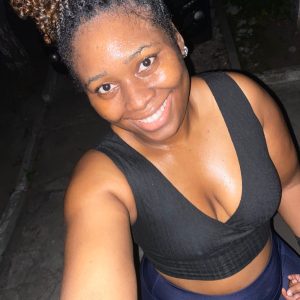Introduction
As women it is important that our bodies are nourished by the food we eat and the overall lifestyle that is needed for long sustainable health and wellness. In competition it especially important because more of the right nutrients are necessary to nourish the body not only for high performance but also for long term sustainability.
Mind Your Calories
We are all grown with responsibilities. Let’s face it “doing life” as a woman can be challenging but these challenges tend to make superheroes out of us in the end.
Why not take on the challenges as it relates to our bodies and our caloric intake on a daily basis?
Generally, adult women are encouraged to have Carbohydrates: 45–65% of calories Protein: 10–35% of calories and Fat: 20–35% of calories. Carbohydrates are typically the preferable fuel source for many athletes, particularly for high intensity and long duration exercise. This is because they supply ample glycogen storage and blood glucose to fuel the demands of exercise.
Related: Engage & Benefit From Our Virtual Nutrition Support
Zone Diet

Image Source: https://zonediet.com/the-zone-diet/
Get in the Zone! CrossFit recommends the Zone Diet, which encourages a balance of lean proteins, non-starchy vegetables, nuts, seeds and low glycemic fruit while limiting starch and refined sugar. The diet is overall healthy and may help manage hunger and improve blood sugar and inflammation. It is also recommended that you try the Zone Diet for four weeks, then tweak it based on your needs.
|
|
Breakfast | Lunch | Snack | Dinner | Snack |
| Protein | 3 blocks | 3 blocks | 1 block | 3 blocks | 1 block |
| Carbs | 3 blocks | 3 blocks | 1 block | 3 blocks | 1 block |
| Fat | 3 blocks | 3 blocks | 1 block | 3 blocks | 1 block |
Timed Nutrition
While it is difficult for any human being to eat on time (perfectly/consistently) due to how busy we have all gotten, and the challenging nature of life itself, we should all aim for 2-3 meals daily if you are in a fat-loss phase; and 3-4 meals daily if you are in a muscle gain phase. If you’re just sustaining your weight, 2-4 meals daily will do. You can eat more frequently than this if you prefer, the downside is that the extra work with meal planning can threaten your adherence. Generally, a meal should be had within two hours of finishing your training. Finally, don’t train on empty stomach, you should try to have a whey shake or BCAA drink at the minimum. (This isn’t counted in the meal frequency guidelines above.)
Take Your Vitamin & Mineral Supplements
Training in CrossFit requires you to perform at your highest level. With that said, your One- A- Day gummies just simply will not do. The list below outline in brief, the micronutrient supplements you can consume, towards satisfying your health and nutrition needs:
- Multivitamin – A good insurance policy against deficiencies. – 1/day when cutting, not normally needed when bulking.
- Essential Fatty Acids – Usually consumed in the form of fish oils, when appropriately dosed, EFA’s help with leptin signaling in the brain, reducing in inflammation, enhancing mood, and reducing disease factor risk. They can also aid in joint recovery and have shown potential for some metabolic benefits as well. 2-3g/day, EPA (eicosapentaenoic acid) and DHA (docosahexaenoic acid) combined.
- Vitamin D3 – Having insufficient levels of vitamin D in the body can compromise the immune system, which can be a disaster for someone who is training hard, dieting, or attempting to perform any type of activity at a high level. – 9-36 IU/lb/day (20-80 IU/kg/day) based on sun exposure are good levels to consume.
Related: Benefit From Our Personal Training System
The next time you find yourself indecisive about what to eat before and during your CrossFit Training, call to memory the information above, and it will guide you into painting a clearer picture of your “Hierarchy of Needs”. We know we don’t always get it right but the aim is to get really close to sustainable nutrition in whatever moves you!
References
https://www.issaonline.com/blog/post/nutrition-for-endurance
https://wodprep.com/blog/only-nutrition-article-athletes-need/
https://journals.lww.com/acsm-msse/Fulltext/2016/03000/Nutrition_and_Athletic_Performance.25.aspx
https://www.medicalnewstoday.com/articles/nutrition-for-athletes#macronutrients
About The Author

Tiphani has worked in administration for over 10 years and is very dedicated to self-improvement and growth. Mental and physical wellness are two major passions as she holds a Bachelors degree in Psychology and is engaged in a fitness routine for her personal physical fitness journey.
She currently works fulltime in administration and part time in virtual nutrition support (OB Fitness). She believes in balance and discipline mentally, physically and spiritually. Tiphani is an advocate for finding your gifts and making them make room for you, which she has already done herself by establishing The Suitest Voice, a voiceover company that does voice ads, narration and IVR services. You may follow Tiphani and The Suitest Voice on Instagram @the.suitest.voice.



